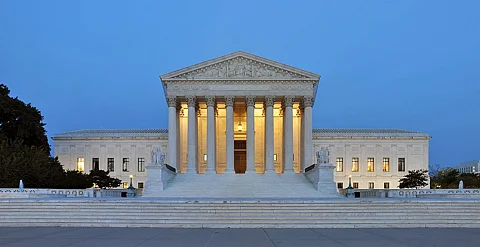Supreme Court Grants Trump DOGE Data Access
In a contentious ruling on Friday, a divided U.S. Supreme Court temporarily granted the Trump administration’s request to allow the Department of Government Efficiency (DOGE) access to sensitive Social Security Administration (SSA) records containing personal data on millions of Americans.
The unsigned order lifts an April injunction by U.S. District Judge Ellen Hollander, who had barred DOGE from accessing unredacted records—including Social Security numbers, medical histories, and banking details—without proper safeguards. The court’s three liberal justices dissented, with Justice Ketanji Brown Jackson warning the decision poses “grave privacy risks for millions of Americans.”
“Social Security numbers, birth dates, addresses, bank-account numbers, medical records—all of that, and more, is in the mix,” Jackson wrote. “The Government wants to give DOGE unfettered access to this personal, non-anonymized information right now—before the courts have time to assess whether DOGE’s access is lawful.”
Privacy Concerns and Legal Challenges
The case stems from a lawsuit filed by a coalition of unions and advocacy groups, who argued that granting DOGE broad access to SSA systems violated the Privacy Act and endangered citizens’ sensitive information. Judge Hollander had ruled that DOGE employees could only view anonymized or redacted records unless they completed rigorous background checks and privacy training.
The Trump administration, however, contended that DOGE needed unfiltered data to combat fraud and modernize outdated systems. Solicitor General D. John Sauer accused lower courts of “micromanaging” DOGE’s efforts to address government waste.
Critics, including former SSA officials, expressed alarm. Kathleen Romig of the Center on Budget and Policy Priorities noted sworn testimony suggesting DOGE staff accessed data from unsecured locations. “While courts debate the legality, DOGE operatives will have ‘God-level’ access to Americans’ most private information,” Romig told CNN.
The ruling marks a short-term victory for DOGE, an agency central to President Trump’s push to slash federal spending. Its former head, Elon Musk, has since publicly clashed with the president. The Supreme Court also paused a separate lower-court order requiring DOGE to disclose records under federal transparency laws, further shielding its operations from scrutiny.
The case now returns to appellate courts, but the interim access granted by the Supreme Court could set a precedent for similar disputes over government data sharing.

